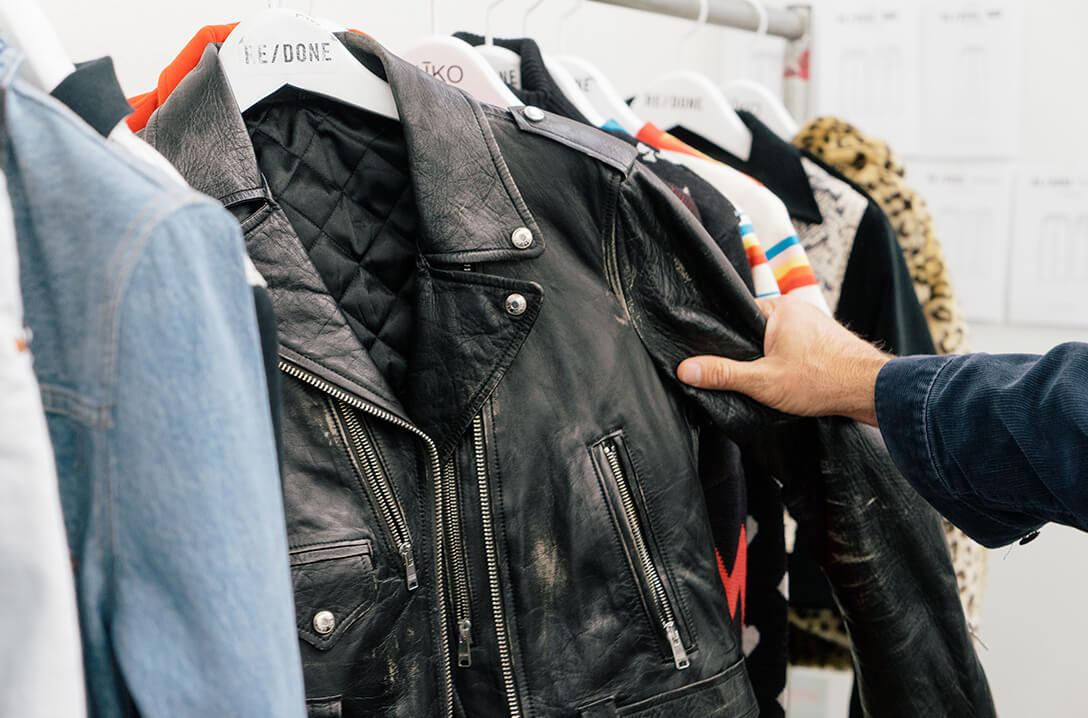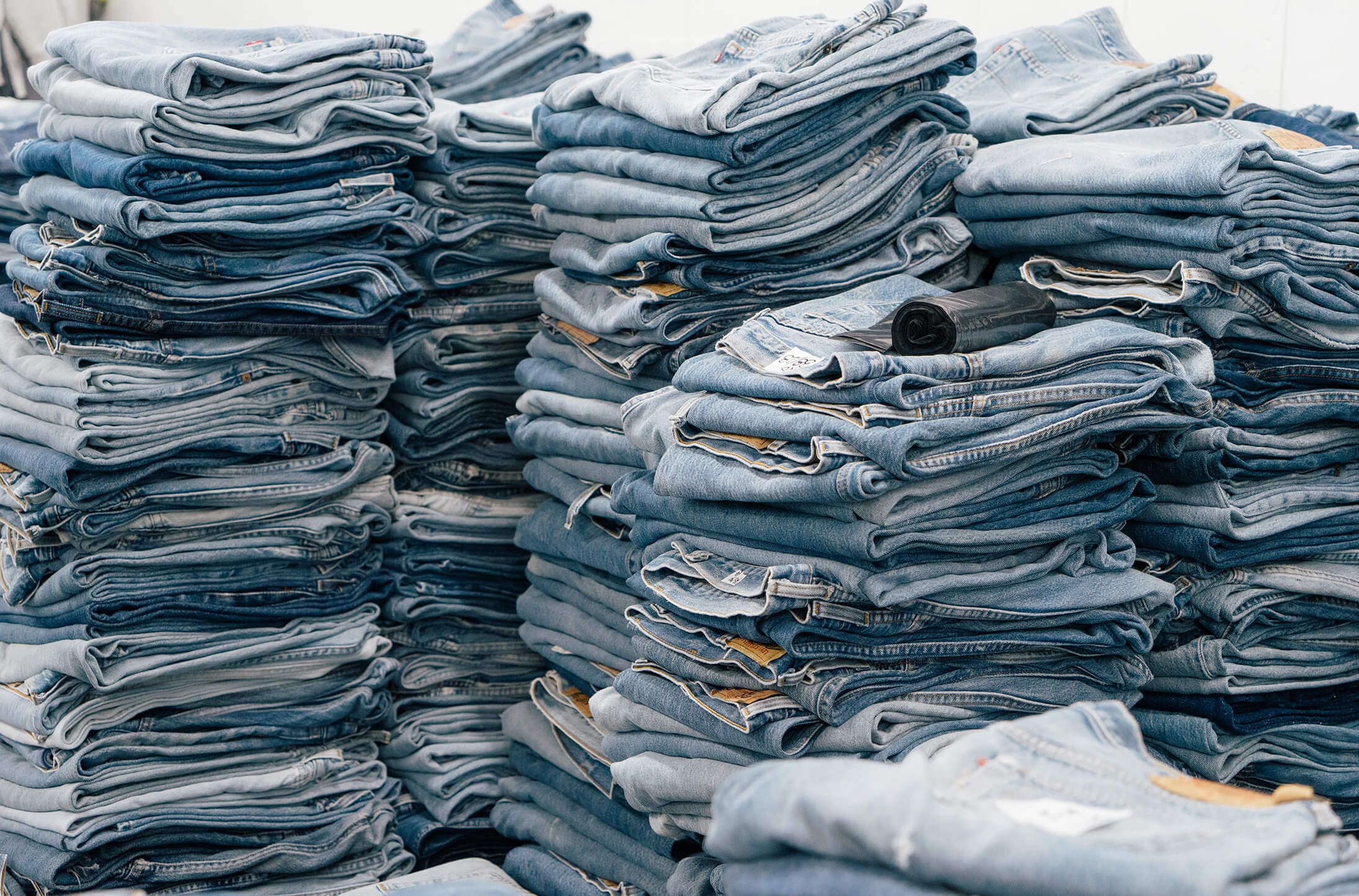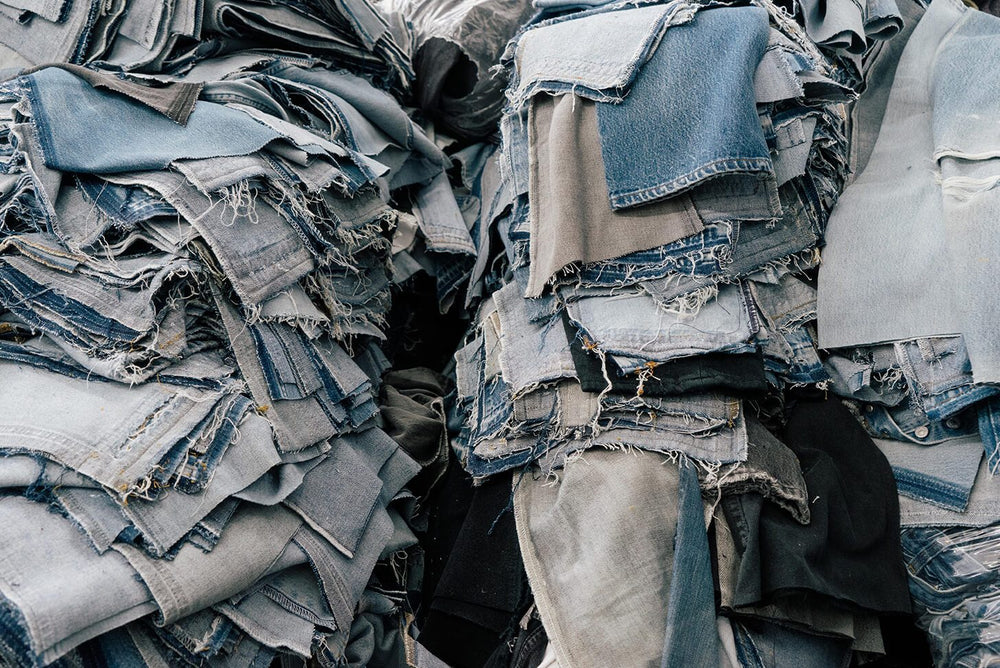Once upon a time, when music videos had their own TV channel, it was enough to go to a store, buy a pair of jeans and call it a day. But today’s market is saturated with too many choices, too much information and not enough of the right fit. On the demand side, consumers are tormented with a newfound understanding of fast fashion’s unsustainable practices (thanks, Information Age). The denim market in particular is rife with issues of waste and toxic materials that would make Greenpeace members clutch their ethically-sourced, free trade pearls. This leaves any conscious consumer asking: Is sustainable fashion too much to ask for? Where do I go if I’m concerned about the water table but still want to look like I could bounce a quarter off my ass?


Enter Re/Done. Founded by Jamie Mazur and Sean Barron, the brand was born out of a persistent problem in fashion: all girls love vintage Levi’s, but usually have to get them tailored to fit better. It took the duo about nine months to figure out how take apart a pair of vintage Levi’s and remake them with a modern fit, all the while maintaining the integrity of the seams and keeping the pockets intact. Mazur recently led us through a tour of Re/Done’s south Boyle Heights factory. Re/Done jeans begin their journey in good hands – while some brands reworking vintage buy their materials by the truckload or the palette, Re/Done experts fly around the country to source their denim. They parse out only the most buttery and well-worn blues to bring back to Los Angeles. They also figure out the sizing of each vintage piece since, after years of washing and wear, an 80s jean labeled a size 31 might fit closer to a modern 28.




Though Re/Done’s process is more labor-intensive, it’s a far more sustainable model than that of traditional denim. In addition to repurposing old pairs and helping to close the fashion production loop, Re/Done jeans are happily spared any of the bad shit that usually goes into the treating process. Instead of industry-standard treatments like sandwashing and chemical processes (which result in runoff and are majorly bad for the environment), Re/Done jeans go through the exact duplicate of a home wash, right down to the amount of water per unit. Mazur explains, “every time someone is buying one of our reconstructed vintage jeans, they’re choosing not to buy something that caused a lot of environmental damage.” Even with the company’s line of newly constructed denim, sustainability is at the forefront. Re/Done makes a point of working with special wash houses that opt for modern eco-friendly wash processes and recycle their water. The fabrics are sourced from the same mill Levi’s pulls from and feature the same oversize pockets, button flies, and slight imperfections, with the added bonus of stretch and wash options. “Whatever you’re looking for, we have something for you,” Mazur says.




One of the most unique and admirable aspects of Re/Done’s MO is its commitment to American heritage brands. The most obvious of these brands is of course Levi’s. Levi’s approached Re/Done to create a co-branded label, licensing the Levi’s name for the first time in the company’s 163-year history. Then last year, Re/Done partnered with Hanes to release a selection of basics, which they are expanding next year. As we tour the Re/Done warehouse, Mazur slips into a curtained-off area and begins showing us motorcycle jacket samples. He holds up a perfectly-worn jacket that looks like it was pulled right off of Brando’s shoulders in The Wild One, revealing with a sly grin that they’re in talks with one of America’s oldest motorcycle jacket companies for an outerwear line. Further down the racks are jacquard sweaters from a 100-year old knitting factory that Mazur and Barron stumbled upon. “It’s still operating like it’s 1955. They’re famous for cheerleading outfits and letterman jackets. We’re using their original patterns to recreate all of these cool, fashion versions of what they do.”




While Europe’s luxury brands — Dior, Balmain, Givenchy — are also its heritage brands, in the US these kind of brands are usually relegated to the commercial market. Re/Done aims to rework that equation, elevating American brands that have pioneered fashion but are rarely celebrated in the luxury space. Their work is a movement towards making heritage brands relevant for a new generation through more conscious and sustainable practices. A rising tide lifts all boats, and few are making waves as clean as Re/Done.



